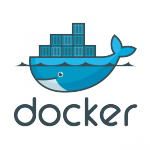How Windows 10 adoption and automation can protect your enterprise

With cyberattacks becoming more prevalent, Microsoft introduced a number of new or vastly improved security features in Windows 10, which officially hit the market in July 2015. The enterprise gave a collective nod of approval, and the Windows 10 migration was underway -- but at more of a crawl than a sprint. Although businesses wanted to take advantage of the Windows 10 benefits, the realities of deployment (associated time, cost, resource drain, and general complexity, to name a few) resulted in a slower-than-anticipated adoption process.
Now, three years in, Windows 10 has reached critical mass and continues to gain momentum. According to Adaptiva’s third annual Enterprise Endpoint Security Survey, the majority of respondents for the first time reported that their companies are running Windows 10 on most machines. In fact, more computers are running Windows 10 than all other versions combined.
Businesses struggle with the rate of growth in API use

In the last few years APIs have become a critical enabler of digital transformation for businesses across all sectors.
Cybersecurity company Ping Identity has surveyed more than 100 security and IT professionals to determine their concerns surrounding the increased use of APIs.
85 percent of companies permit BYOD but security remains a concern

While a large majority of companies now permit employees to use their own devices for work, they have concerns over security and privacy.
Organizations are making BYOD available to employees (76 percent), contractors (27 percent), partners (25 percent), customers (22 percent), and suppliers (19 percent).
Zoho boosts its CRM capability with AI

Business software specialist Zoho is launching the latest version of its Zoho CRM Plus suite, an all-in-one customer experience package that enables sales, marketing, customer support, and operations teams to work as one.
Using Zia, Zoho's intelligent assistant, and Zoho Analytics, the company's business intelligence and reporting engine, the package helps users to understand customer sentiments, provide better experiences across channels, and enable actions to keep customers content throughout their journey -- all from one place.
91 percent see hybrid cloud as the ideal model

Enterprise cloud use is increasing, with with 91 percent naming hybrid cloud as the ideal IT model, yet only 18 percent say they have that model today.
This is one of the findings of a new study by Nutanix to create the first of what is planned to be a global Enterprise Cloud Index, measuring enterprise plans for adopting private, hybrid and public clouds.
New software capability helps manage third-party cyber risks

With digital transformation enabling supply chains to become ever more integrated, businesses no longer have to worry just about the risks posed by their own systems, they must consider those they are connected to as well.
Vendor monitoring solution RiskRecon is launching a new tool that enables enterprises to automatically produce assessments and action plans based on their unique risk requirements, allowing risk professionals to easily understand and act on their third-party risk.
SnapLogic launches self-service machine learning platform

Increasing numbers of organizations are interested in the opportunities offered by machine learning, but their efforts are often hindered by a lack of data science talent.
California-based SnapLogic is launching a new self-service solution to help break down the barriers to implementing machine learning.
IT pros believe data will be impossible to manage long term

A new survey of over 900 senior IT decision makers shows that 87 percent believe their organization's secondary data is fragmented across silos and is, or will become, nearly impossible to manage in the long-term.
The survey, commissioned by Cohesity and conducted by Vanson Bourne, finds that that 86 percent of decision makers believe it's important to solve the challenges of mass data fragmentation.
Misconfiguration and runtime security are top container worries

Container and Kubernetes security company StackRox has released a new report looking to understand how adoption of these technologies affects security concerns.
The State of Container Security report finds that more than a third of organizations worry that their strategies don't adequately address container security.
Fighting mobile ad fraud with artificial intelligence

The mobile advertising market is massive, around $75 billion worldwide according to Forbes, and that makes it an attractive target for fraudsters.
Fraud rates have almost doubled over the past year and companies are under increasing pressure to monitor data for clients, allowing them to identify and prevent the risk of fraud hurting campaign performance.
Poor security habits made worse by the speed of digital transformation

According to a new study, 75 percent of people admit to reusing passwords across accounts, including work and personal, compared to 56 percent who admitted to doing so in 2014.
The Market Pulse Survey by identity management specialist SailPoint shows that digital transformation efforts are leading to increasingly complex IT environments for businesses and employees to manage securely.
Docker launches Windows Server application migration program

Containerization enables organizations to both modernize existing applications and adopt new technologies based on business requirements. But the process of migrating older systems can be daunting.
Popular container platform Docker is addressing this with the launch of a new Windows Server application migration program. This is designed to allow businesses to migrate and modernize their legacy Windows Server applications in advance of the end-of-support deadline for Microsoft Windows Server 2008.
Organizations find cloud costs higher than anticipated

Cloud adoption is high, with 78 percent using or planning to use cloud in the future, but most organizations lack a formal strategy to realize the full benefits and 62 percent report higher than anticipated costs.
These are among the findings of a new survey by Syncsort that shows only 29 percent report having a centralized strategy and center of excellence in place to proactively plan and manage applications to the cloud, while 42 percent migrate applications on an ad-hoc basis.
Enterprises face more than 100 critical vulnerabilities per day

Enterprises identify 870 unique vulnerabilities on their systems every day, on average. Of those, more than 100 are rated as critical on the common vulnerability scoring system (CVSS) according to a new report.
The Vulnerability Intelligence Report from cyber risk company Tenable is based on analysis of anonymized data from 900,000 vulnerability assessments across 2,100 enterprises.
A new approach to data protection at the edge [Q&A]

Given the increase in both frequency and complexity of cyberattacks today, it's no surprise that security is coming to the forefront across industries.
While people often view cybersecurity as hackers trying to steal data, threats can impact more than just traditional data loss. With new technologies like edge computing emerging, we need to start thinking about protecting physical infrastructure in addition to data at the edge.
Recent Headlines
Most Commented Stories
BetaNews, your source for breaking tech news, reviews, and in-depth reporting since 1998.
© 1998-2025 BetaNews, Inc. All Rights Reserved. About Us - Privacy Policy - Cookie Policy - Sitemap.